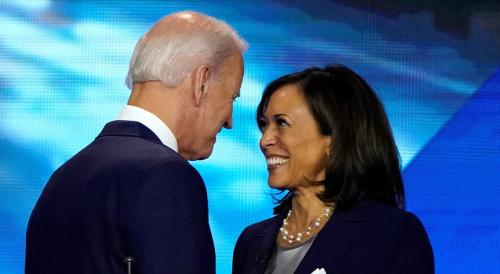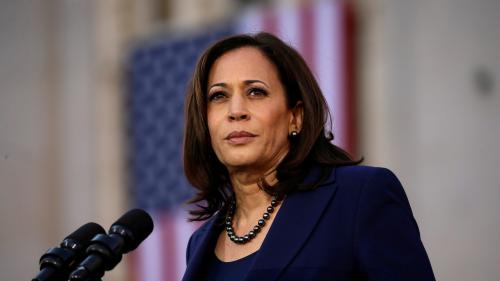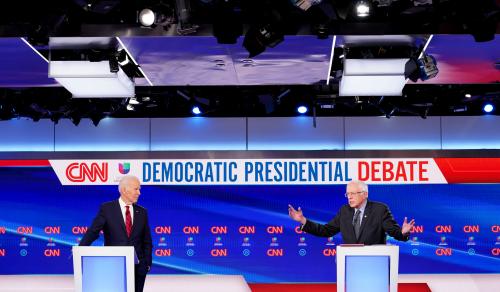Vice President-Elect Kamala Harris’ historical ascent to the second most powerful elected political post in the U.S. was by no means assured a year ago. However, the extraordinary and wrenching national reckoning with racism is key to understanding how this impressive woman became the first Afro-Indian American to occupy the office.
If we remember, in March of 2020, then Democratic presidential candidate Joe Biden said he would pick a woman as his running mate if he were to become the Democratic nominee. At that time, there were several women with excellent qualifications who had been competitors to Joe Biden in the Democratic primaries and it was certainly not preordained that the potential V.P. pick would be a woman of color, let alone Kamala Harris, who had counterpunched well against Biden in the first Democratic debate.
Joe Biden made his commitment to a female running mate weeks after having won handily in the South Carolina primaries, following a crucial endorsement by Representative Jim Clyburn (D-SC) days before the primary. It did not go unnoticed that Clyburn lent his considerable political capital to Biden at a very critical moment in the campaign thereby virtually assuring the support of Black voters in South Carolina and other primary contests. Yet, it is unlikely that anyone would have predicted that Biden would have made a historical selection of a woman of color for his running mate.
When we look back at the moment during which Biden was closing in on the Democratic Party nomination, we will remember that the V.P. selection occurred in the context of a painful national reflection on race and brutality, thrust upon us by the circulation of a video of the sadistic murder of George Floyd in Minneapolis by Derek Chauvin, then an officer with the Minneapolis police. As all of us processed the racism, the lack of humanity, the cries for help we experienced in the video, it became clear that the U.S. had crossed into a different realm, one where the ugly truth of endemic racism was now front and center, was named and was challenged explicitly, in a raw cri de coeur that was no longer contained within the walls of the homes of Black and Brown people.
For weeks and months after George Floyd was murdered, the nation reexamined the sore of racism every time we heard a new name of a Black or Brown man or woman being gunned down by the police. With George Floyd’s murder, the way we talked about racism and the way we acknowledged its profound and lasting impact, changed. And so, a decision to choose a woman as a running mate, made before this national reckoning with racism, now had to comprehend this fundamental shift in the public consideration and discussion of race in America.
This imperative shifted the political currency of Black politicians in two important ways. First, the changed and raw nature of the conversation on racism, and the way racism intertwined with the disparate impact of COVID-19 on Black communities, propelled Black politicians into the spotlight. Second, the continued activism of Black protesters, social media influencers, and sports figures against racism and the reactions of large corporate entities, also allowed Black politicians to showcase the importance of a growing electoral coalition aligned against racism and to argue that the priority of addressing racism had to be factored into the selection of a running mate.
As we know, once Joe Biden became the presumed Democratic nominee, he began considering a number of stellar women for the V.P. slot, among whom there were several women of color. Senator Amy Klobuchar, among those under consideration, bowed out of the process, citing the need for Joe Biden to select a woman of color. But beyond this, Biden had to seriously engage with the growing political clout of Black Congressional and political leaders as he created a list of potential running mates. As a result, Biden’s camp began considering additional Black women candidates.
The continuing stream of videos of Black men and women facing police brutality arguably kept racism front and center as Biden considered running mates. Ultimately, he selected Harris, someone with considerable experience with whom he connected personally. But there is no doubt that Biden understood the electoral importance of signaling his acknowledgment of the political power that had been unleashed by the reaction to George Floyd’s murder.
Kamala Harris’ victory is historic. It has taken a long time for Americans to join the rest of the world in electing a woman to a top post. But Harris’ identity as a Black and Asian woman and all that it has signified about the hopes of ending enduring racism was a real factor in this election. In exit polls, 72% of non-white voters backed Biden/Harris, and 20% of voters listed racial inequality as the most important issue motivating their vote, a percentage that is higher than for any other issue. Of those who listed racial inequality as the top issue, 91% voted for Biden. The Biden/Harris coalition is multicultural and cares deeply about racial inequality. Biden and Harris will have to deliver to keep this coalition together.
George Floyd and the many other Black and Brown men and women whose lives were violently and unjustifiably ended by racist police officers, did not die in vain. However, the arc of justice is not complete. For the nation to emerge from this period, and to be on the road to fulfilling the promise of a full democracy, Vice President-Elect Kamala Harris’ historic win must be followed by a consistent and intentional focus at the Executive level on ending racism in America.







Commentary
A fitting legacy for George Floyd: Vice President Kamala Harris
November 7, 2020